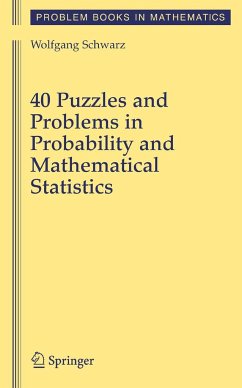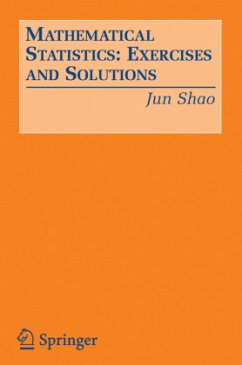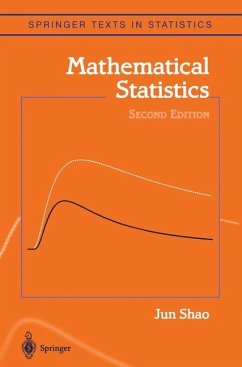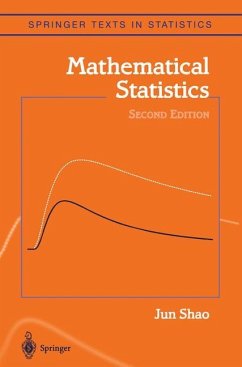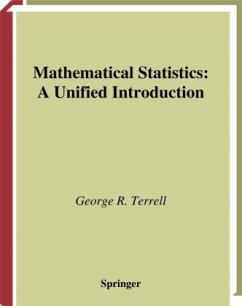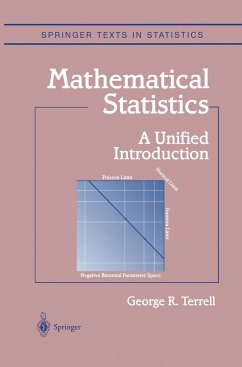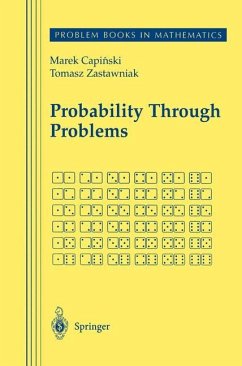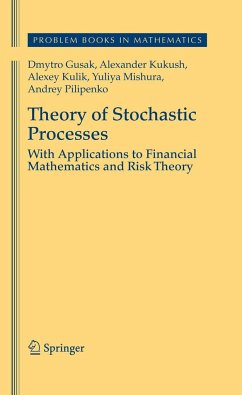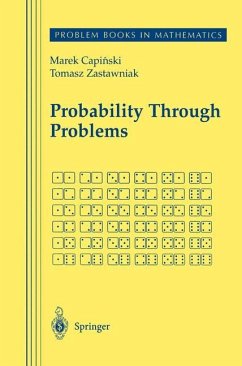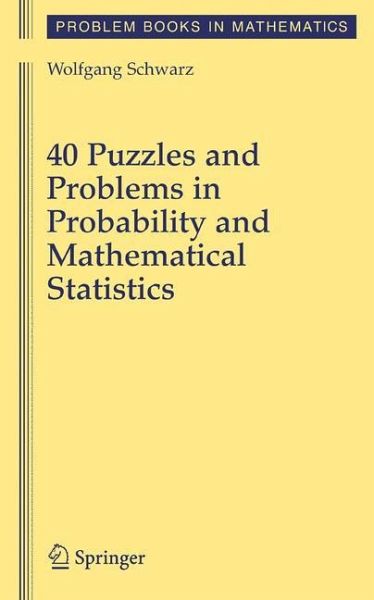
40 Puzzles and Problems in Probability and Mathematical Statistics
Versandkostenfrei!
Versandfertig in 6-10 Tagen
38,99 €
inkl. MwSt.
Weitere Ausgaben:

PAYBACK Punkte
19 °P sammeln!
As a student I discovered in our library a thin booklet by Frederick Mosteller entitled50 Challenging Problems in Probability. Itreferredtoas- plementary "regular textbook" by William Feller, An Introduction to Pro- bilityTheoryanditsApplications.SoItookthisonealong,too,andstartedon the ?rst of Mosteller's problems on the train riding home. From that evening, I caught on to probability. These two books were not primarily about abstract formalisms but rather about basic modeling ideas and about ways - often extremely elegant ones - to apply those notions to a surprising variety of empirical phe...
As a student I discovered in our library a thin booklet by Frederick Mosteller entitled50 Challenging Problems in Probability. Itreferredtoas- plementary "regular textbook" by William Feller, An Introduction to Pro- bilityTheoryanditsApplications.SoItookthisonealong,too,andstartedon the ?rst of Mosteller's problems on the train riding home. From that evening, I caught on to probability. These two books were not primarily about abstract formalisms but rather about basic modeling ideas and about ways - often extremely elegant ones - to apply those notions to a surprising variety of empirical phenomena. Essentially, these books taught the reader the skill to "think probabilistically" and to apply simple probability models to real-world problems. The present book is in this tradition; it is based on the view that those cognitive skills are best acquired by solving challenging, nonstandard pro- bility problems. My own experience, both in learning and in teaching, is that challenging problems often help to develop, and to sharpen, our probabilistic intuition much better than plain-style deductions from abstract concepts.





